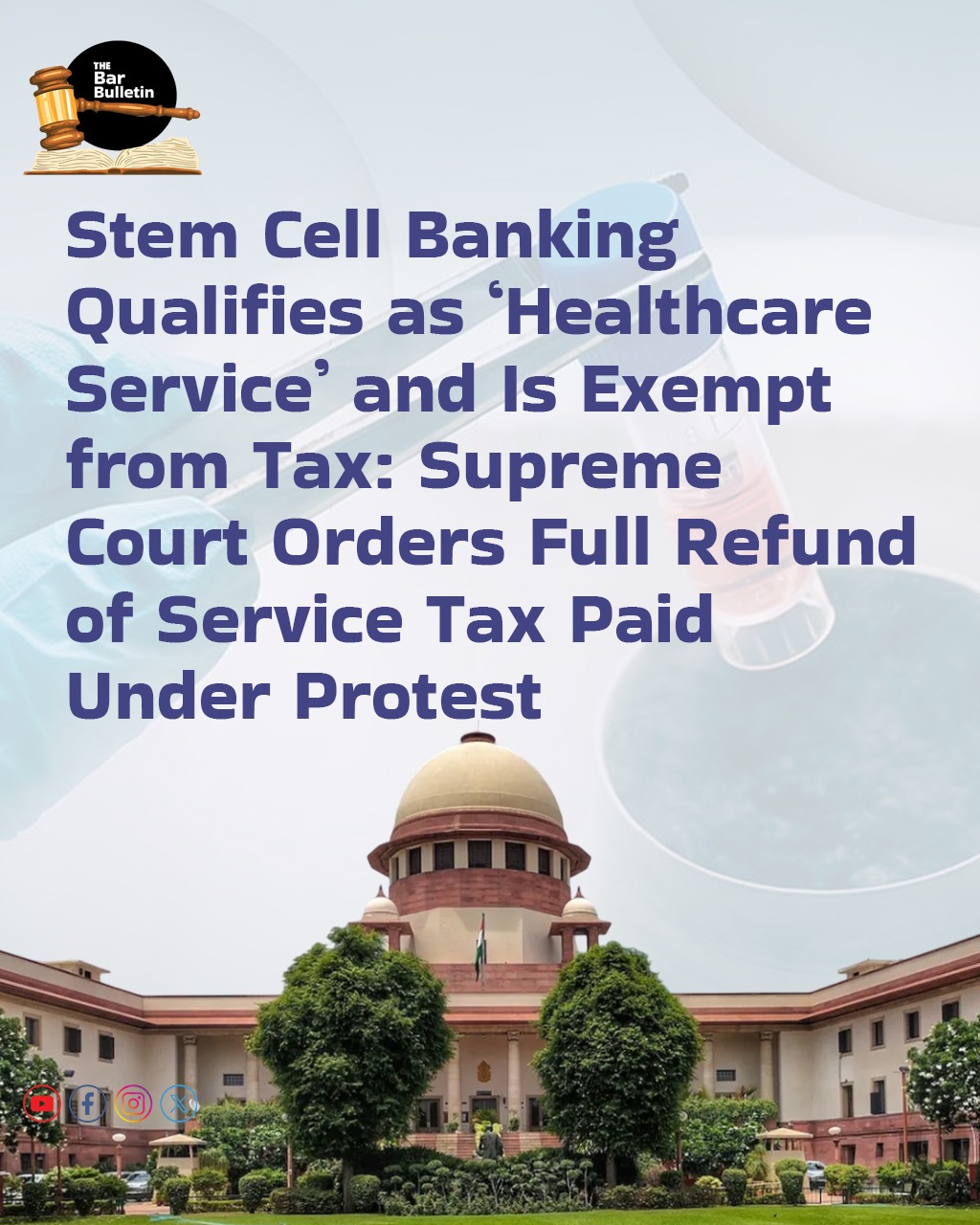The Supreme Court has held that stem cell banking services fall within the ambit of “Healthcare Services” and are therefore eligible for exemption under Notification No. 25/2012-ST. The judgment, delivered by a Division Bench comprising Justice J.B. Pardiwala and Justice R. Mahadevan, marks a vital clarification in service tax jurisprudence concerning healthcare-related services.
The case involved an appellant an entity engaged in the enrolment, collection, processing, and storage of umbilical cord blood stem cells, and a member of the Association of Stem Cell Banks of India who had sought refund of ₹40 lakhs deposited under protest following a service tax demand. The appellant had relied on the exemption available to “Healthcare Services” under the 2012 notification and cited a clarification issued by the Ministry of Health & Family Welfare (in consultation with NACO), which recognised stem cell banking as a healthcare service.
Rejecting the Revenue’s contention that such services were exempt only from 17 February 2014 under Entry 2A of Notification No. 4/2014-ST, the Court ruled that the subsequent notification was merely clarificatory in nature and did not curtail the broader exemption already available under Serial No. 2 of the earlier Notification No. 25/2012-ST. The absence of a specific mention of cord blood services in the original notification, the Bench observed, does not alter the essential healthcare character of such services.
The Court underscored the principle that beneficial exemption notifications must be interpreted liberally. It held that the appellant qualifies as a “clinical establishment” under Clause 2(j) of the 2012 notification and that its operations are also regulated under the Drugs and Cosmetics Act, further establishing its credentials as a legitimate healthcare provider.
The matter had reached the Supreme Court after the CESTAT rejected the appellant’s claim for exemption for the period between 1 July 2012 and 16 February 2014, and upheld a service tax demand of ₹2.07 crores along with interest and penalty. Notably, the show cause notice had been issued on 28 July 2017 well beyond the normal limitation period despite departmental awareness of the appellant’s activities as early as 2013.
The Court held that in the absence of fraud, collusion, wilful misstatement, or suppression of facts, the invocation of the extended period of limitation under Section 73 of the Finance Act, 1994 was unjustified. The Court highlighted that the appellant’s conduct compliance with departmental queries and voluntary deposit of tax under protest indicated a bona fide belief in the exemption and no intent to evade tax.
Concluding that the entire demand was time-barred and legally untenable, the Court quashed the tax demand and penalties imposed. It further directed the Revenue to refund the full amount of ₹40 lakhs deposited by the appellant within four weeks.
Appearance:
For the Appellant: Advocate Krishnamohan K
For the Respondent: NA
![]()

